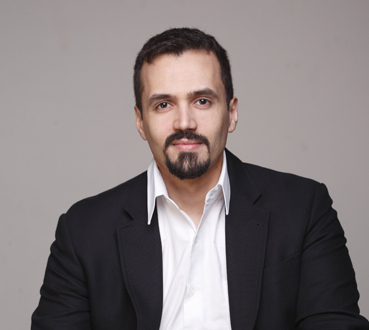
By Ahmed El-Ashram
I look around and I see an unprecedented level of despair in the eyes of many friends; an overt level of frustration of how their lives have unluckily coincided with the mishappenings of recent years. Many wish they were not there to witness the toxic politics, the economic misfortune and the precarious region on the cusp of war. Granted, the 70s/early 80s generation, currently in the prime of their lives, has, for the most part, enjoyed the best of what Egypt had to offer since a long time. Aside from the deteriorating poverty metrics over the past decade, this generation endured no tormenting conflict or scourging war. It consumed the products of globalisation and racing technology, enjoyed an extended global peace and reaped the fruits of their predecessors’ socio-economic endeavours. Yet, nowadays it is hard to convince most that their lives can soon return to their earlier norm.
Despite the looming threats in Sinai and on the western borders with Libya, the situation in Egypt still looks relatively contained but mostly depressing. The backdrop of a struggling domestic economy and internal security threats is compounded by the disturbing developments in Syria, Iraq, Libya and Yemen, all of which are lurching toward the dissolution of organised statehood, and an extended period of unrest and civil war. In fact, the same generation, which had much bigger hopes for itself and its kids, marching in a revolution against oppression and fear, is facing the possibility of a multi-year war against an elusive enemy taking many shapes and forms. While this still fairs much better than the fate of the neighbouring embattled populations, dying or living in refuge, it nevertheless clouds the future of a deeply challenged nation.
A large number of Egyptians won’t hide their explicit desire to part with all this and perhaps immigrate or find a job in a more stable country. Levels of legal and illegal immigration have definitely shot up over the past few years. Yet sadly, this type of war is one that has far-reaching repercussions. With the atrocities of the Islamic State [ISIS] widely televised, the anti-Muslim bias in the world is bound to grow. The disgraceful acts of violence are tainting the image of Islam worldwide, and the large number of foreign militants involved with ISIS is sounding an alarm that the problem may be specific to a particular faith; an opinion that may be easily taken up by the less discerning public. The recent uncovering of a violent plot in Australia has also signalled that the threat is not limited to the Middle East. If the violence of ISIS begins to take a global scale, an apprehensive public may be quick to point fingers, threatening the identity of millions of peaceful Muslims worldwide. Many social media posts are already starting to defend an identity that seems to be, consciously or subconsciously, coming under threat. Such growing tensions may still disturb the lives of many, regardless of where they reside.
It is indeed frustrating that the perils of war are at out our doorstep after the range of traumas and disappointments that followed the short-lived hopes of the Arab Spring. The question is whether this generation that has not lived a war before is prepared to shoulder its burdens and ramifications. After all, it has to grapple with a strategy to rebuild a country with worn-out infrastructure, stalled economic growth and fraying social cohesion in a world of rapidly shifting geopolitical risks. It has to find a niche in an alliance fighting an enemy of unprecedented brutality, while at the same time securing the backdoor from attacks by cowardly factions lurking for an opportunity to harm. Surmounting these challenges will require both skill and substantial reserves of willpower, most of which have been unfortunately depleted in over three years of political experimentation. The war against terrorism may be an inconvenient one, but it may yet be an opportunity to show unequivocally just how resolute this generation can be in pursuing a better future and a more prosperous homeland.
Ahmed El-Ashram is an economist in Washington D.C.



